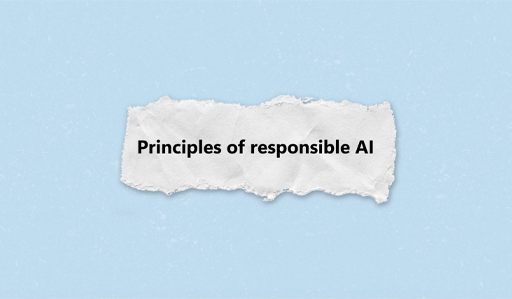2 Principles of responsible AI
It is essential to develop AI systems based on trustworthy, fair, and privacy-conscious principles. This video outlines six key principles: accountability, inclusiveness, reliability and safety, fairness, transparency, privacy and security. Discover how these principles foster trust and help create AI systems that respect individual rights and serve society.

Transcript: Video 2
The journey to responsible AI begins with trust, a trust that is built on these six principles:
Accountability: Define clear roles and responsibilities for AI impacts.
Inclusiveness: Ensuring AI benefits everyone and is accessible to all.
Reliability and safety: Extensive testing, validation, ongoing monitoring, and safety protocols with robust error handling.
Fairness: Equitable treatment of all individuals, with regular assessments to prevent bias.
Transparency: Enable users to comprehend AI decisions in order to build trust.
Privacy & Security: Safeguard user data, collect only necessary information, and implement strong security protocols.
These principles aim to develop AI systems that benefit society while upholding individual rights and values.
